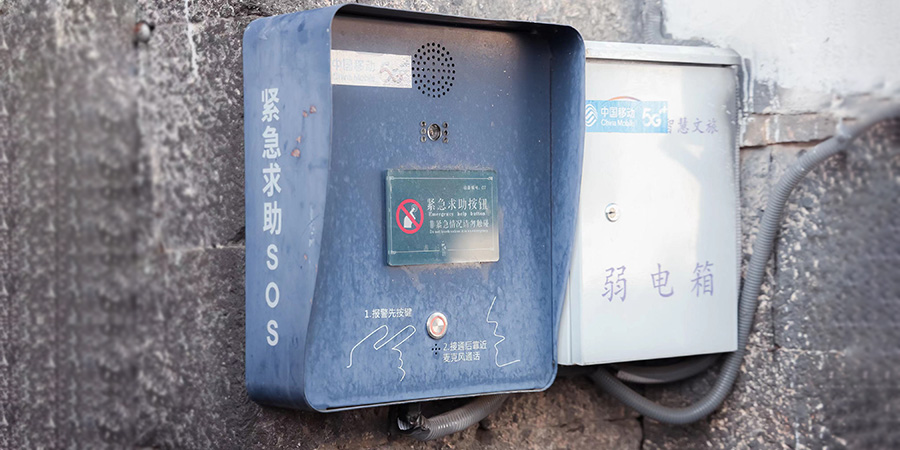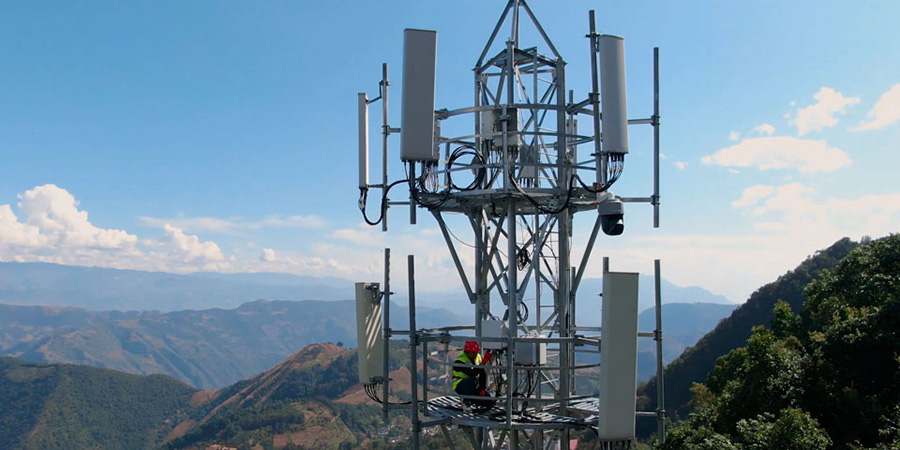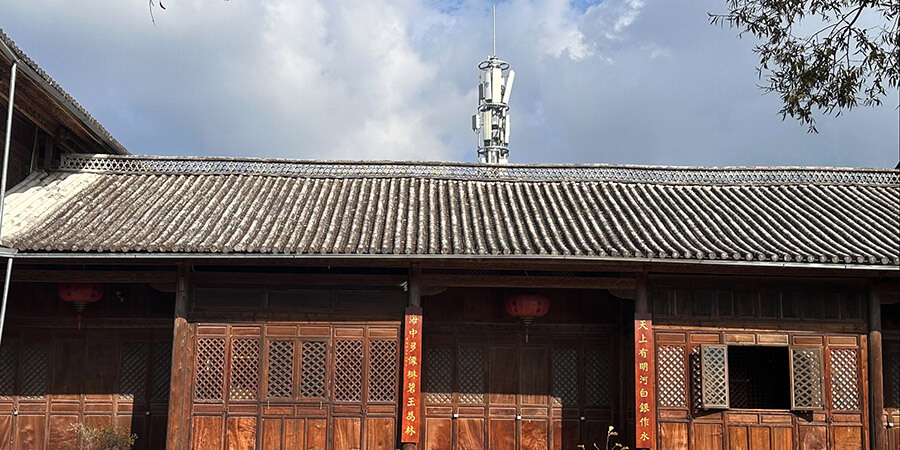China is building out the digital infrastructure of its countryside. Yunnan Province in particular shows how, and why, it’s getting results.
Huawei held its third Sustainable Development Forum on November 21st, 2023, at Dongguan Xiliu Beipo Village. The forum, centered around the theme ‘Thrive Together with Tech: Realizing Sustainable Development,’ bridges the gap across different locations by connecting live sessions taking place in Yunnan, Italy, Pakistan and Ghana. Its primary focus is to discover the transformative potential of digital technology, notably through Huawei's innovative solutions, in order to drive sustainability and economic development in rural and underserved places.
Digital Technologies Fuel the Rural Economy
The emergence of digital technologies has been credited with catalyzing the economic revitalization, marking a pivotal moment that has unveiled opportunities in connectivity, communication, and e-commerce. In this period of fast technological advancement, Huawei has emerged as a prominent player, advocating for the integration of new technologies, such as 5G, to drive economic growth, foster sustainable business models and create local job possibilities. Huawei's mission is to ‘to bring digital to every person, home and organization for a fully connected, intelligent world.’
As part of its ‘Digital China’ campaign, the country has embarked on a mission to transform its rural areas into thriving digital villages in order to achieve its goals of developing a modern economic system to ensure rural revival. This effort is designed to harness internet, information, and digital technologies to improve agricultural growth, stimulate rural, socioeconomic development and raise the IT abilities of farmers.
Meanwhile, smart villages have become popular worldwide, particularly in Asia and Africa. Innovative solutions using easy-to-deploy rural wireless solutions and renewable energy sources improve resilience and living conditions in these communities. Chinese agricultural and rural areas are modernized by the Rural Revitalization Strategy, which emphasizes the need for digital villages.
By the end of this year, China plans to have made significant progress in the establishment of digital villages. The use of digital technology to assist national food security and the alleviation of poverty is one of the primary goals, along with increasing the number of broadband users in rural regions, which is expected to reach 190 million. Additionally, 5G is planned to cover almost all towns where conditions permit. The country also plans to automate 26.5% of agricultural production, improve digital literacy and support digital rural governance.
Huawei Helps Villages Bridge the Digital Divide
Huawei, in collaboration with operators, has played a significant role in bringing information and communication technologies (ICT) to rural villages in areas like Yunnan, the most southwestern province in China. Huawei's combined solutions, which integrate 5G, cloud computing and artificial intelligence, draw inspiration from exceptional ICT use cases and contribute to the development of digital infrastructure in remote locations. This effort seeks to empower citizens in rural areas and close the digital divide that exists between urban and rural settings.
Smart Tourism Revitalizes Heshun’s Economy
In 2020, Heshun Town, which is in southwestern Yunnan, launched its plan for the Smart Tourism Project and it was officially implemented in November 2021. Since then, the village has experienced a significant transformation through the integration of 5G technology, which is a crucial component of the Smart Tourism Project. With improvements to digital infrastructure formerly isolated regions have been integrated into the modern world in a seamless manner. Not only has the implementation of 5G technology provided economic vitality but it has also produced immersive cultural experiences.
Additionally, 5G has emerged as a driver of economic expansion in Heshun, resulting in the creation of new employment opportunities and attracting new capital investments. The village was previously remote, but it has since been transformed into a bustling center that honors its unique cultural heritage, while also welcoming the opportunities presented by the digital age. The fusion of traditional practices and innovative ideas, facilitated by digital tech, showcases the potential for sustainable development in sparsely populated regions.
Other innovations in the village include the integration of water and air quality monitoring systems, high-altitude HD cameras, one-click alarm systems, and fire monitoring systems, which has been achieved through extraordinary speed, low latency and large capacity. This not only promotes intelligent administration of picturesque locations but also strengthens the capacity of the provincial government to protect environmental integrity, cultural artifacts and tourist well-being.

Furthermore, the implementation of 5G, VR and AR, IoT and big data has produced significant change in Heshun. A selection of intelligent amenities that augment the tourist experience include self-service photo printers, self-service water dispensers, leisure benches with charging capabilities and self-service ticket vending devices. These technological advancements enable tourists to experience Heshun in a more streamlined and interconnected manner, thereby elevating its position in smart tourism.
The positive impact that smart tourism has had on Heshun's economy can clearly be seen in the city's recent growth. Currently, the village has around 6,500 beds, 110 restaurants and over 1,000 stores. In addition, there are more than 500 hotels in the area. All of which has improved the quality of life for more than 4,000 residents in the area.
The rippling effect of the economy can also be seen in Tengchong City. The city's overall revenue from tourism skyrocketed to CNY 17.1 billion, which is a phenomenal 38% YoY increase, driven by a 22% YoY increase in the number of tourists. The tourism revenue represents 69% of the city’s total GDP.
Please refer to this link for more information: Smart tourism revitalizes Heshun's economy

Brewing Success in Xinzhai Village
Known as the ‘first village of Chinese coffee,’ Xinzhai Village in Baoshan City, Yunnan Province, has undergone a revolutionary shift directly attributable to the introduction of 5G technology. Xinzhai Village, which was struggling to maintain its distinguished standing in the face of challenges posed by a conventional coffee industry, shifted its focus toward innovation. The rollout of 5G service in Xinzhai was propelled by a collaborative effort between Huawei and China Mobile, ushering in a phase of swift technological advancement.
The coffee industry in Xinzhai Village was struggling not too long ago, and farmers were only able to make small profits, of less than CNY 15,000 per hectare from their coffee crops. As a result of the deteriorating outlook, several farmers seriously considered giving up coffee farming completely. However, Xinzhai Village has recently surged to the forefront of the global coffee industry due to a change in the government's management philosophy.
Xinzhai Village adopted a comprehensive strategy and implemented an integrated, high-quality coffee development plan across the full industry value chain. This was accomplished by focusing on the coffee's origins. The town established new benchmarks for excellence in every aspect of the production process, from careful selection and cultivation to harvesting and processing. This dedication to quality control not only won the market and businesses' respect, but it also drove up the price of green coffee beans from CNY 15 per kilogram to CNY 60 per kilogram.
The village is now fully covered with 5G network deployed by China Mobile Yunnan to digitize its coffee industry. China Mobile Yunnan built 5G infrastructure over the Gaoligong Mountains after investing heavily in network building and optimization. Locals get premium network services, and tourists and farmers get a better experience. Five 700 MHz base stations are spread across Xinzhai, allowing residents to communicate, shop online and offline, broadcast coffee farms and monitor agricultural environments with the help of IoT.
Today, Xinzhai Village's coffee fields sprawl over 906 hectares, covering 95% of its total cultivated land. Moreover, the community produces over 4,000 tons of coffee worth CNY 120 million, yielding over CNY 70 million in revenue.
Xinzhai Village now has access to worldwide markets thanks to modernization efforts. This has resulted in the establishment of online commerce, live broadcasting of coffee plantations and IoT-based crop monitoring. The widespread availability of 5G service has improved villagers' ability to communicate and work together. Thus, introducing new opportunities in e-commerce and providing coffee producers with increased leverage in pricing negotiations.
Please refer to this link for more information: 5G brings the Yunnan coffee trail from China’s mountains
As the third Sustainable Development Forum begins, Huawei’s innovations and initiatives as the leader in technology becomes more evident. Huawei is not only connecting regions in the Yunnan province of China, but it is also crafting a narrative of growth, sustainability, and a common vision for a better, digitally-empowered future.






